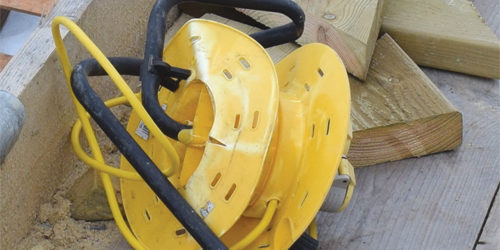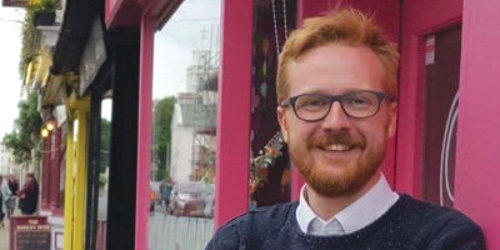
There are levels and types of risk management; some of it is regulatory – you are required by law to manage health and safety. This everyday health and safety management that may include risks to your employees from the machinery they use, from working around moving vehicles, working in dusty conditions etc, or there may be risks to your customers or guests.
Then there is Disaster Recovery or Business Resilience where there may be big financial risks if things do not go to plan on time, if a key member of staff is taken ill, or if suppliers let you down.
The weather may play a part – extreme weather may stop staff or materials getting in or out, or a big outdoor event may be rained off.
And these days there may be the threat of fanatics causing disruption which in turn may affect you directly or affect how you staff get to work. None of these are mandatory, but nevertheless any one could cause your business – and possibly your reputation problems.
So in a nutshell, Business Risk Management deals with thinking what could adversely affect your business (or event), how the business would be affected if something were to happen, dealing with it and planning for the recovery.
The mandatory part of this – health and safety is easy to manage, provided you either have suitably qualified personnel ‘in house’ or engage a consultant such as Clearwater Safety. As your advisors, we can take over the day-to-day oversight of health and safety within your company. We can’t take away the responsibility – that stays with the management team. But we can write all of the policies you need, set up and monitor the procedures your staff need to follow, deal with staff safety training, and we can help you with CHAS or ConstructionLine etc accreditation if you need them.
However when it comes to the other part, surveys have shown that very few businesses have addressed the problem of assessing how resilient they would be in the event of something serious happening. Indeed, many look at the time and potential cost involved in carrying out an assessment of their preparedness, and decide it’s not worth it. But the costs of not being prepared can be catastrophic to your business.
You need to think of the cost – both in terms of time and money in the same way you think about insurance. You may not want it, but just having it in place can give you real peace of mind.
Going through the process can be difficult enough for large businesses who can dedicate time and resources, but what about smaller organisations who often have far less freedom to allocate staff to do the work? This is perhaps the fundamental reason why small business do not plan for disaster recovery.
So how can Clearwater Safety help you. We will sit down with your management team and go through our questionnaire to assess how you could cope with a variety of circumstances. Once we know your weak areas, we can set about correcting them. Now some of the remedies will probably be an easy fix, others may require financial investment and may take many months to embed into your company systems. You may feel that some are not worth spending money on at the present time, but you will at least know what the risks are.
IT’S CARNIVAL SEASON!
Time to be out in the (hopefully) summer sunshine enjoying all the local events, whether they are beer festivals, concerts in the park or on the beach, classic car shows or any of the multitude of other things that go on here in Sussex. And of course, there is plenty of sport to watch too.
But even in the idyllic setting of the weekend party atmosphere, ‘elf and safety rears its head… Not again I hear you cry! But wait – this is us making sure you are safe where you go to party or watch your local team play football, cricket, rugby etc.
You may recall some of the media ‘hysteria’ when it was announced that the Lions’ May Fair in Devizes had to be cancelled after the local authority refused to grant a licence – with the media blaming ‘elf and safety. There was even some erroneous chatter that the group needed to have a terrorist action plan…
Well, to be fair to the local authority, they do have a legal duty of care to make sure that the people who attend these events are kept safe from harm. And in this case it seems they weren’t satisfied that the organisers had done enough.
And this is where Clearwater Safety comes into the mix. The Local Authority who grants licences for public events normally takes information from the Emergency Services and others in what is called a Safety Advisory Group (SAG) when deciding whether to grant a licence. In addition to these the SAG can invite interested parties to sit in the panel to provide their input. These may include:
• The event organisers or promoters
• Venue owner/operator
• Traffic/transport providers
• First aid providers
• Community representatives if the event is around houses etc
• Highways Agency
Clearwater Safety can work for you - the event organisers. Before you submit your safety plan to the Local Authority or SAG, we can work with you to make sure that we have considered all the possible issues that could arise and have put control measures in place, either to prevent any adverse occurrence or to manage things if they do go awry. Then we can go with you to the SAG meetings to deal with any questions they may have. Some of things you will need to consider when setting up your event are:
• Stewards /Marshals – how many do you need, do you need qualified SIA staff?
• Will you need extra Police?
• Have you thought about parking?
• First Aid – how much do you need?
• Welfare – how many toilets do you need to provide?
• Fire Safety – have you considered exits, evacuation plans etc?
• How will you manage the crowds, both static or moving?
• Will you have food on sale?
• Are you selling alcohol? Have you organised the licence?
• Will you have a ‘Bring your Own’ Alcohol Policy. Who will police it?
Our event safety advisors have been trained at the Government’s Emergency Planning College, so you can be confident that the knowledge we bring to the table is correct and suitable for your needs.
We use the industry standard Guidance Notes to ensure that we give the correct advice to our clients.
If you are organising an event this season, call us; we want to help you have a good time.






